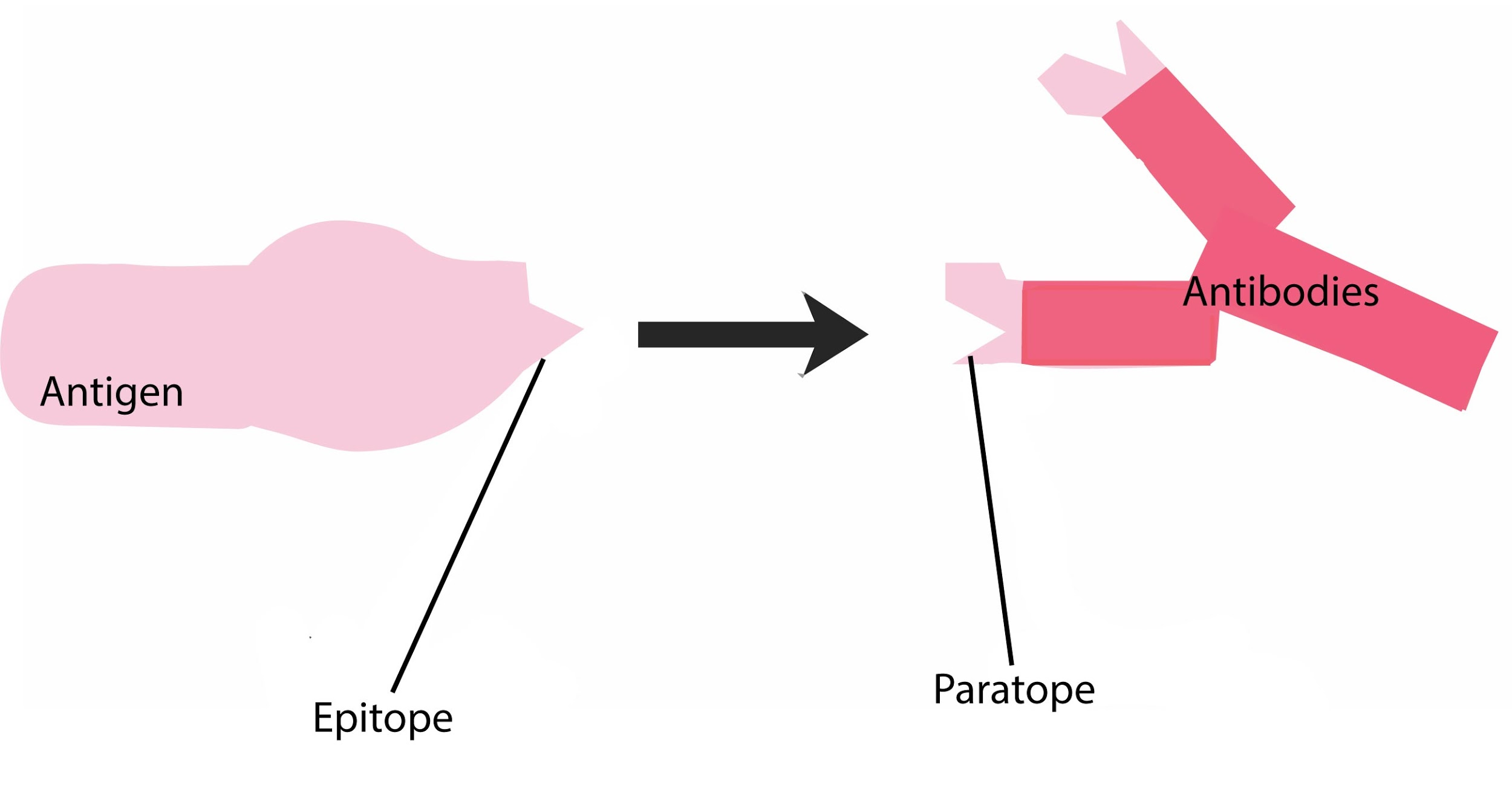
Which of the following best explains the difference between epitope and an antigen?
(a)An epitope is any foreign substance; an antigen is a foreign protein.
(b)An epitope is part of an antigen where an antibody or lymphocyte receptor binds.
(c)An antigen is the part of an epitope where antibody or receptor binds.
(d)An antigen is recognized by B-cells and antibodies, the epitope is recognized by T-cells.
Answer
591.6k+ views
Hint: They are related to the immune system of the body as the first is called an antigenic determinant, it is the portion that is capable of stimulating an immune response specifically the production of antibodies while the other comes from outside.
Complete answer:
Epitopes are the actual portion of the fragments of an antigen that reacts with the receptor on the B-lymphocyte and T-lymphocyte as well as with free antibody molecules. While an antigen may be defined as a substance that reacts with antibody molecules and the antigen receptors present on the lymphocyte.
Additional Information:
- Generally, 5-15 amino acids are thought to be equivalent to the size of an epitope.
-An antigen is called an immunogen that is recognized by the body as nonself or foreign and stimulates an immune response.
-Chemically, antigens are large and have more molecular weight proteins and polysaccharides.
-These proteins and polysaccharide antigens are found on the surfaces of viruses and cells including microbial cells.
-There can be more than one epitope for an antigen to which different antibodies get attached.
- Binding between the receptor and epitope occurs only if they are complementary.

So, the correct answer is, ’ An epitope is part of an antigen where an antibody or lymphocyte receptor binds.’
Note: If the epitope and receptor fit together like pieces of a puzzle, then an event that is necessary to activate the production of antibodies will start. The antibodies produced by cells are targeted specifically to the epitopes that bind to the cells’ antigen receptors. Thus, the epitope also is the region that is recognized by specific antibodies, which bind and remove the antigen from the body.
Complete answer:
Epitopes are the actual portion of the fragments of an antigen that reacts with the receptor on the B-lymphocyte and T-lymphocyte as well as with free antibody molecules. While an antigen may be defined as a substance that reacts with antibody molecules and the antigen receptors present on the lymphocyte.
Additional Information:
- Generally, 5-15 amino acids are thought to be equivalent to the size of an epitope.
-An antigen is called an immunogen that is recognized by the body as nonself or foreign and stimulates an immune response.
-Chemically, antigens are large and have more molecular weight proteins and polysaccharides.
-These proteins and polysaccharide antigens are found on the surfaces of viruses and cells including microbial cells.
-There can be more than one epitope for an antigen to which different antibodies get attached.
- Binding between the receptor and epitope occurs only if they are complementary.

So, the correct answer is, ’ An epitope is part of an antigen where an antibody or lymphocyte receptor binds.’
Note: If the epitope and receptor fit together like pieces of a puzzle, then an event that is necessary to activate the production of antibodies will start. The antibodies produced by cells are targeted specifically to the epitopes that bind to the cells’ antigen receptors. Thus, the epitope also is the region that is recognized by specific antibodies, which bind and remove the antigen from the body.
Recently Updated Pages
Master Class 12 Economics: Engaging Questions & Answers for Success

Master Class 12 Physics: Engaging Questions & Answers for Success

Master Class 12 English: Engaging Questions & Answers for Success

Master Class 12 Social Science: Engaging Questions & Answers for Success

Master Class 12 Maths: Engaging Questions & Answers for Success

Master Class 12 Business Studies: Engaging Questions & Answers for Success

Trending doubts
Which are the Top 10 Largest Countries of the World?

What are the major means of transport Explain each class 12 social science CBSE

Draw a labelled sketch of the human eye class 12 physics CBSE

Why cannot DNA pass through cell membranes class 12 biology CBSE

Differentiate between insitu conservation and exsitu class 12 biology CBSE

Draw a neat and well labeled diagram of TS of ovary class 12 biology CBSE




